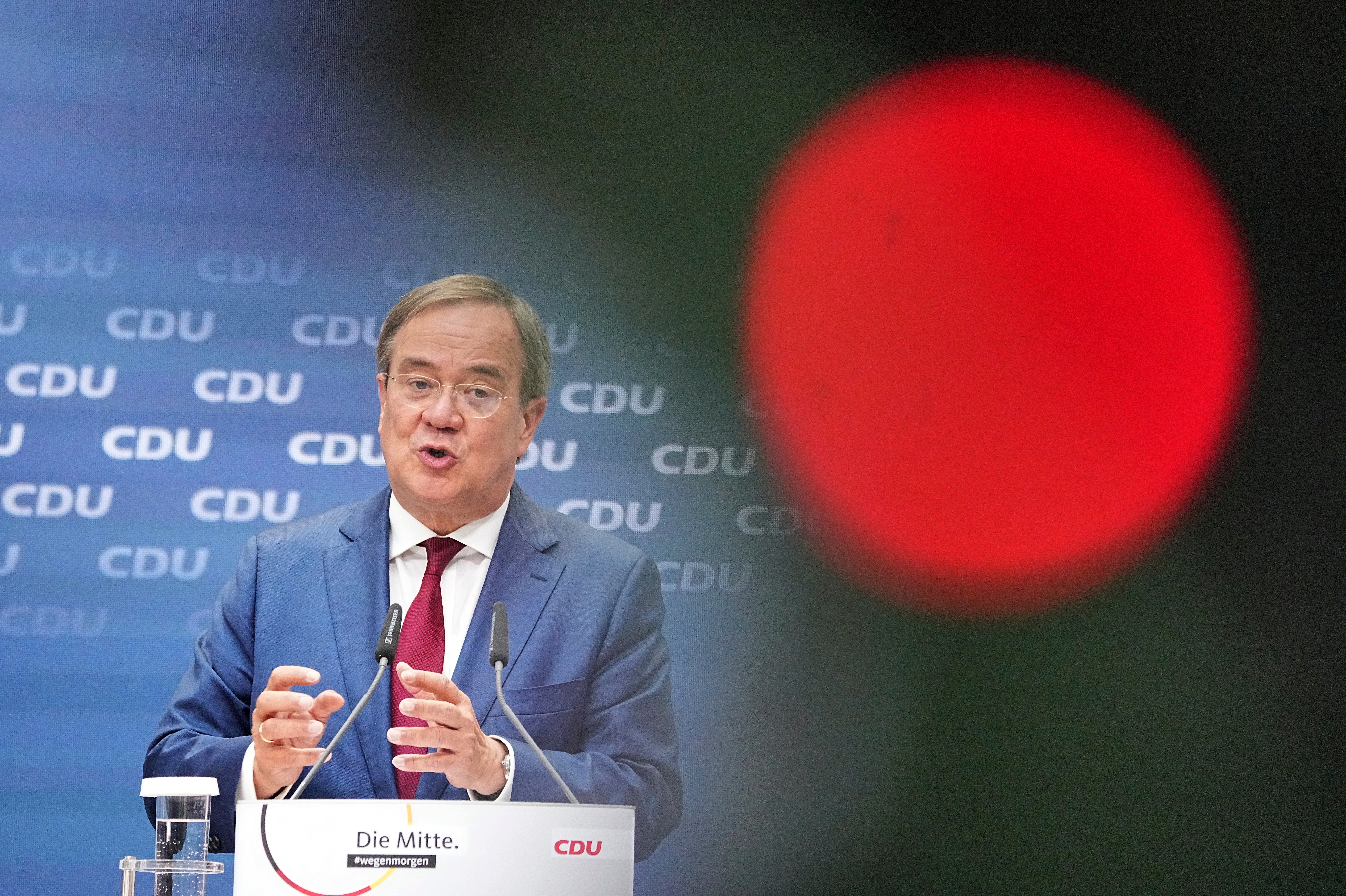German leadership candidate talks security amid party woes
The struggling center-right candidate to succeed German Chancellor Angela Merkel is touting his party’s law-and-order and security credentials as he tries to turn around disappointing polls, questioning his left-leaning rival's stance toward the police and the military

The center-right candidate to succeed German Chancellor Angela Merkel touted his party's law-and-order and security credentials on Friday as he tried to turn around disappointing polls, questioning his left-leaning rival's stance toward the police and the military.
Armin Laschet has been tapped by Merkel's Union bloc as the candidate to follow her after 16 years in office.
But he again faced questions about tensions within his own party as the Sept. 26 parliamentary election nears. Recent polls show the Union trailing the center-left Social Democrats who have been helped by the relative popularity of their candidate, Finance Minister Olaf Scholz.
“As chancellor, I want to minimize risks and ensure security,” said Laschet, the governor of Germany's most populous state, North Rhine-Westphalia. “Expertise on security is a core expertise of the Union,” he added, boasting that he has applied a “principle of zero tolerance toward crime” in his state.
Laschet criticized remarks by one of the Social Democrats' co-leaders, Saskia Esken, who said at the time of last year's anti-racism protests in the U.S. that there's also “latent racism” within the ranks of Germany's own security forces. Laschet said police and others deserve politicians' “basic trust” and not “sweeping suspicions.”
Laschet said that the German military must have “the money it needs to be able to act.” Defense Minister Annegret Kramp-Karrenbauer said Germany must “really pursue” the NATO aim of spending 2% of gross domestic product on defense, arguing that Scholz had wanted to spend less on the military.
Still, questions persisted over the Union's woes as it struggles to catch up in the polls. On Thursday, Markus Soeder — who leads the Bavaria-only Christian Social Union, the sister party to Laschet's Christian Democratic Union — said that “if there is still a chance to break the trend, then it’s this weekend.” Soeder earlier this year battled Laschet for the nomination to run for chancellor.
Laschet, who on Sunday faces the second of three televised debates with Scholz and Green candidate Annalena Baerbock, said it's “evident" the election will produce a tight result. He said Sunday heralds the elections' “final sprint" as nothing has yet been decided. He's expected at a CSU party congress on Saturday.
Laschet also said that Karin Prien, a regional education minister, will remain on a team of experts he presented a week ago to boost his campaign.
A controversial right-wing former head of Germany's domestic intelligence agency who is running for Laschet's CDU in the election, Hans-Georg Maassen, had demanded Prien's removal after she said she was “not at all thrilled” about his candidacy and hinted that she might not vote for him if he were running in her constituency.
—-
Follow AP’s coverage of Germany’s election at https://apnews.com/hub/germany-election
Bookmark popover
Removed from bookmarks